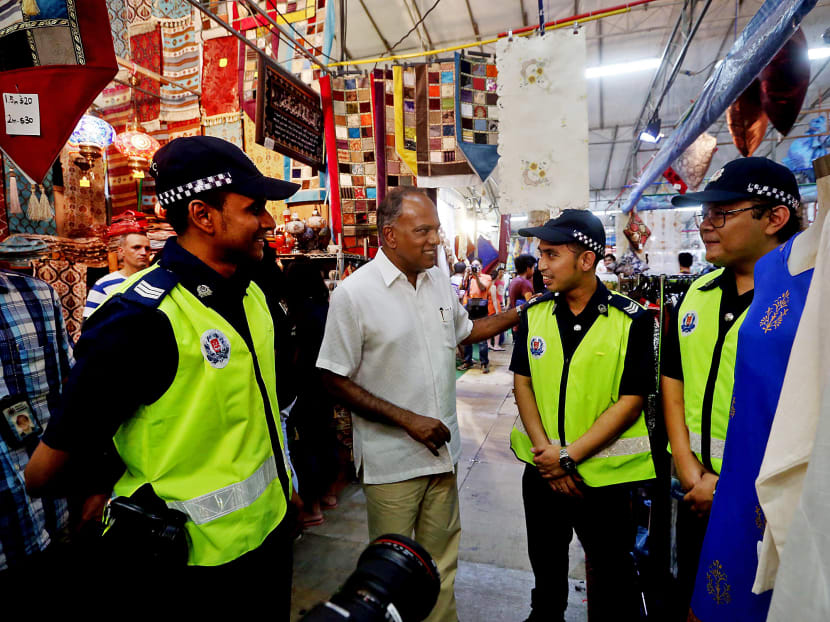State intervention ‘keeps extremism at bay, fosters integration’: Shanmugam
SINGAPORE — The local brand of “activist state intervention”, comprising policy measures to cultivate integration, coupled with the legal framework, and acceptance from citizens, keeps extremist teaching at bay and allows Singaporeans to be tolerant.
SINGAPORE — The local brand of “activist state intervention”, comprising policy measures to cultivate integration, coupled with the legal framework, and acceptance from citizens, keeps extremist teaching at bay and allows Singaporeans to be tolerant.
In contrast, Britain has long allowed extremist preachers to poison the minds of Muslims as part of freedom of speech, Home Affairs and Law Minister K Shanmugam noted to reporters yesterday. Many segments of society end up being exposed to those ideas, and the British authorities are limited in terms of legal intervention.
“I find it odd that intelligence agencies get blamed, when first of all it’s the society and legal framework that have failed them,” he said, referring to allegations that Britian’s MI5 had been alerted to Manchester bomber Salman Abedi earlier.
British Prime Minister Theresa May herself has spoken of the need to review Britain’s counterterrorism strategy so that the police and security services have all the powers they need, including increasing the length of custodial sentences for terrorist-related offences, even apparently less serious offences.
Mr Shanmugam said different societies have different thresholds, and the various agencies are “doing the best they can”.
“How do you stop someone who takes a car or van and drives along the public road and drives onto the pavement or takes a knife along?” he said of a scenario that applied equally to Singapore. “So you got to make sure the conditions that create such ideas are nipped in the bud ... that’s what we’ve been doing.”
Laws allowing the authorities here to step in “much earlier” than in other countries are insufficient, he said.
He pointed to other forms of intervention: The ethnic integration policy in housing estates, which prevents the formation of enclaves and ghettos, as well as the availability of fair economic opportunities.
Ensuring that Singaporeans know they have a fair stake in the system is also “extremely important”, and no amount of legal intervention or internal security action would help if any particular group feels marginalised, he warned.
“You’ll need society by and large to be moderate and tolerant. Otherwise the security agencies will just be chasing their tail,” he said, adding that Singaporeans must also accept these as common goals.
“Over the last 50 years, active state intervention and schools and other social policies have created an environment — an intellectual environment as well as a social environment — where our people believe these to be the right approach and believe in multiculturalism and a multiracial, multi-religious society.” VALERIE KOH







